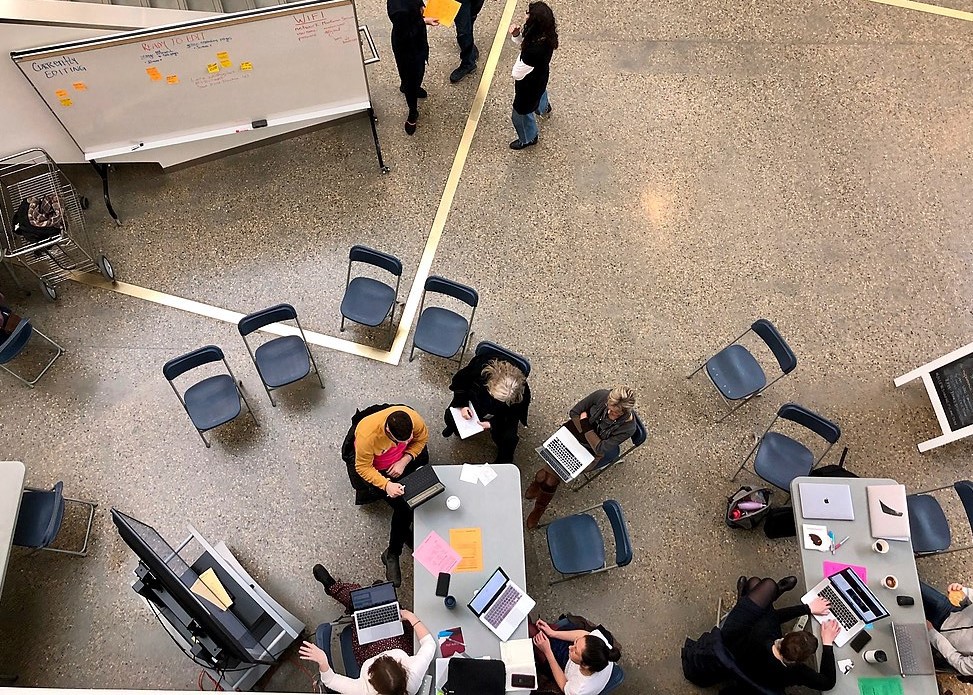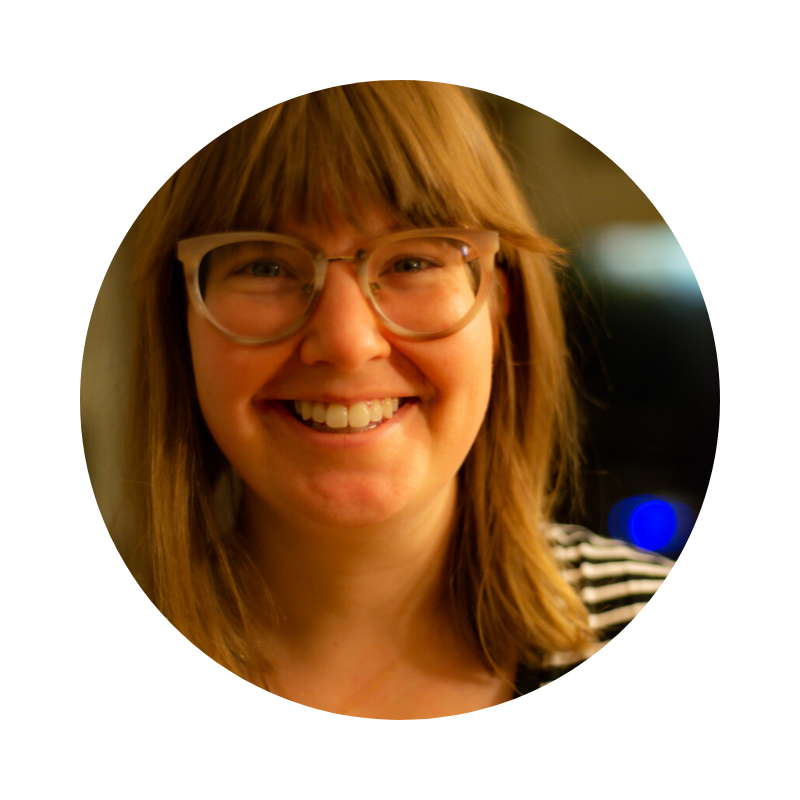 Wikipedia Art + Feminism Edit-A-Thon. Photo by Viola-Ness - Own work, CC BY-SA 4.0
Wikipedia Art + Feminism Edit-A-Thon. Photo by Viola-Ness - Own work, CC BY-SA 4.0
The first time I learned about editing Wikipedia, I couldn't believe how accessible it was. Just a few quick keystrokes and no coding knowledge required. Now, as the Wikipedian in Residence for the University of Alberta Library - one of a growing number of such positions across Canadian universities and institutions of learning worldwide - my job is to engage our community in learning how to use and contribute to the site, and to show folks across campus that editing Wikipedia is both doable and necessary.
While Wikipedia is not peer-reviewed in the traditional scholarly sense and ideally shouldn't be used as an academic citation, it is a ubiquitous resource. It is consistently among the world's top 10 most visited sites, with around 10 billion page views on English Wikipedia each month. Thus as teachers and librarians it demands our attention.
Public education projects such as the Wikipedian in Residence program are critical for the future of Wikipedia. Unlike The Canadian Encyclopedia, or even a digital encyclopedia like Encarta, Wikipedia is an encyclopedia where anyone can contribute. Yet very few people actually do contribute, and this lack of participation has consequences for the breadth and diversity of content available on the site. While about 40 million people across the world have signed up as editors at one time or another, only 68,000 editors are 'active', meaning they have made more than five edits.
What I find most compelling about Wikipedia: it is built on 'emotional architecture' provided by a small segment of people. Editors tend to write about what they know or care about. This is why there is a robust entry for each season of Grey's Anatomy yet an accomplished professional like Dr. Deena Hinshaw didn't even have a Wikipedia entry until two months ago. Currently, less than 15 per cent of editors are women or nonbinary folks. It's no surprise, then, that only 17 per cent of biographies on Wikipedia are of women or nonbinary people, and a majority of citations on the site are sources written by men. There is very little data on racial bias on Wikipedia, but there are significant knowledge gaps demonstrated by the absence of entries for notable people of colour. These are only a few dimensions of the lack of diversity; the English site is also greatly skewed to a white-centric, colonial perspective of the world.
As long as a small contingent of editors remain responsible for the site's content, it will continue to poorly reflect diverse experiences. We need more people writing about a broader range of topics in order to improve the site. This is one of the reasons that Wikipedians in Residence are becoming increasingly common across Canadian universities and GLAM institutions worldwide. The role creates more visibility for the great potential to expand the diversity of entries on the site. It facilitates connection with an audience of engaged students, researchers, and staff who boast a fantastic range of interests and deep expertise. Concordia University Library and the University of Toronto Libraries have both run successful residencies, and other schools have been offering programming like Western's Wikipedia Tuesdays club, an Honouring Indigenous Writers edit-a-thon at UBC, and a Wiki Education Visiting Scholar program at McMaster.
The Wikipedian in Residence project at the University of Alberta Library is new this year and was made possible with donor support through the Library Project Leadership Fund. My term is through August 2020, and my role is twofold. First, I run programming to engage the university community in learning about the Wiki ecosystem. Second, I work with staff to mine the library collections and archives for images and references to add to Wikipedia, so that the content in our holdings is accessible to a wider audience.
Since February, I have helped organize an Art + Feminism edit-a-thon and a six-week Wikipedia 101 series for library staff. I was really excited to host library colleagues as guests to share their knowledge related to Wikipedia. For example, copyright librarian Amanda Wakaruk shared her expertise on image sharing and copyright, library resident Kate Cawthorn spoke to the connections between Wikipedia and library information literacy, and digital initiatives projects librarian Sarah Severson taught a section on sources and citations. We will be offering a Wikipedia 101 series again in June and July, open to anyone who is interested.
Throughout the summer, I will continue working with library staff to support them in the creation of new articles and I hope to support other interested community members in this way. My own editing work will use the library's rich digital collections and archives to add new content to Wikipedia. I plan to focus on a few key areas: biographical entries for women represented in the Bruce Peel Special Collections. First up: early 20th century journalist and explorer Miriam Green Ellis, local Edmonton history, local artists (such as Lauren Crazybull), and uploading images of small town Alberta history from the university's collections.
You can follow along and engage with our Wikipedia work at the Library on our project page, make suggestions about what work we should tackle over the summer, join in as an editor, and share your feedback about Wikipedia programming.
If you'd like to get in touch about Wikipedia, I'm available by email and I also have a weekly office hour on Wednesdays from 11 a.m. to noon on Google Meet.

About Erin
Erin O'Neil is entering her second year as a master's student in Digital Humanities, specializing in Gender & Social Justice studies. She is interested in exploring how the phenomenon of apathy manifests in digital spaces. Erin is a member of the APIRG Edmonton board of directors, chapter lead for Teens Learning Code Edmonton, and communications officer for the Canadian Society of Digital Humanities/La Société canadienne des humanités numériques.